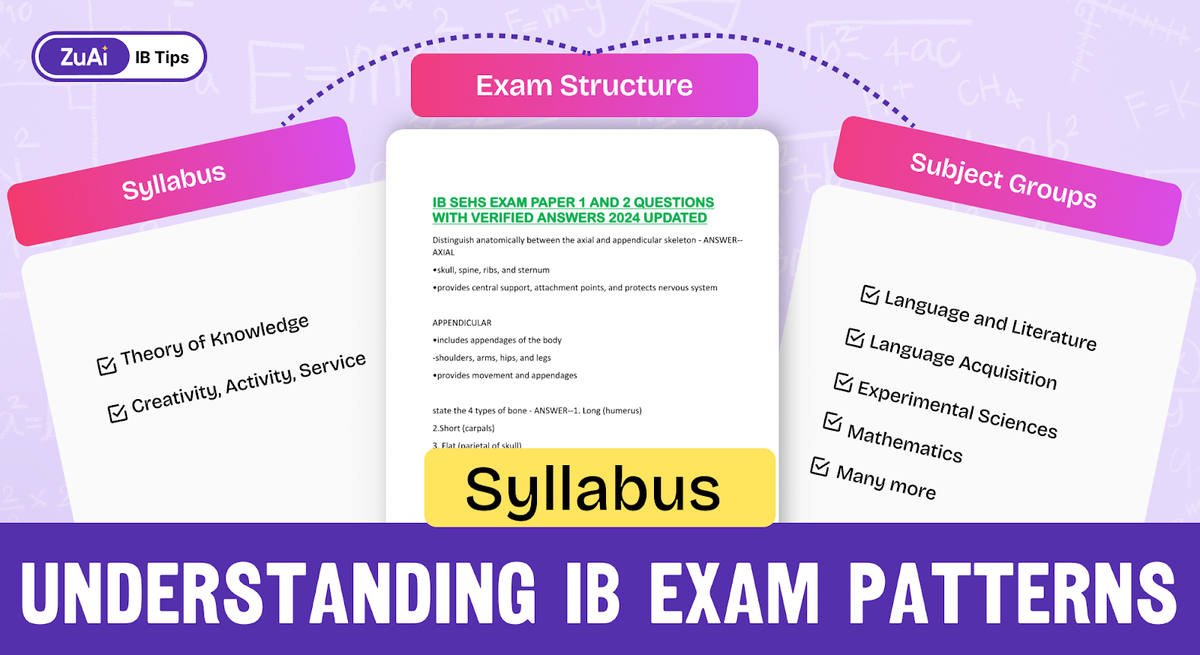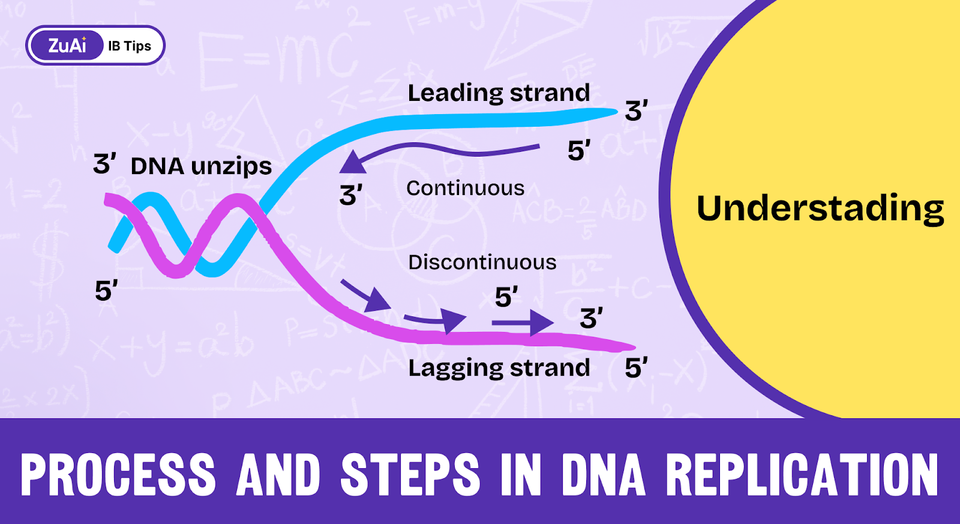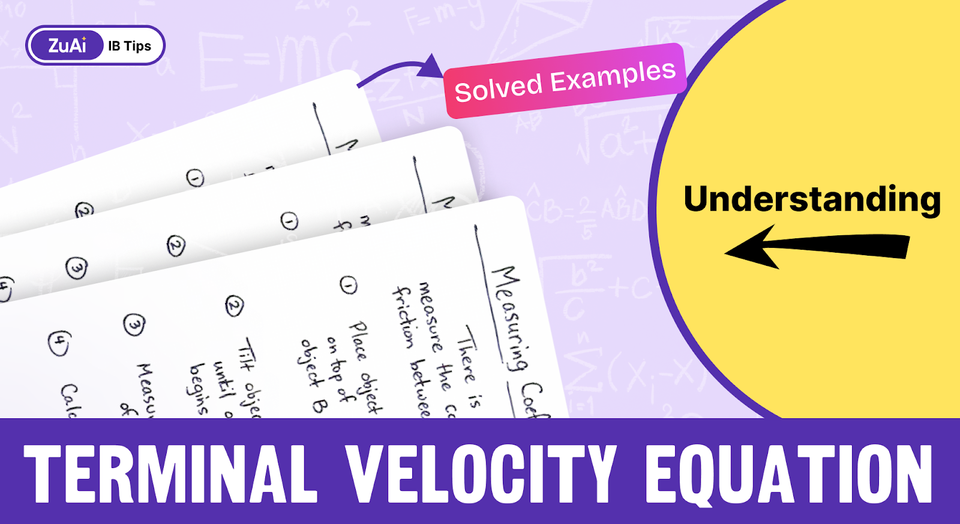IB Exam Patterns and Syllabus Breakdown: What You Need to Know

Balancing the demands of the International Baccalaureate (IB) Diploma Programme is no easy feat. With rigorous coursework spanning six subjects, the need for independent research, and a commitment to community involvement, it’s no wonder so many students feel the weight of this challenge. The IB program doesn’t just test knowledge; it cultivates critical thinking, global awareness, and resilience through a complex exam structure and a unique set of core requirements.
Navigating this journey requires not only dedication but also a clear, strategic approach. For both students and parents, understanding how to tackle each component—from Theory of Knowledge (TOK) and the Extended Essay (EE) to Internal Assessments (IAs)—is essential for success. Alongside academic effort, effective tools and resources can make a world of difference, transforming stress into manageable steps and guiding students toward their goals.
Let’s dive into this blog to explore solutions that can make the IB experience more organized, insightful, and ultimately rewarding.
Also read: How to Score a 5 on AP Exams: Tips and Study Techniques for College Board Success
Overview of the IB Examination System
Developed in Switzerland in the 1960s, the International Baccalaureate (IB) program was designed to create an internationally recognized diploma that prepares students for global success. Today, the IB Diploma Programme is offered in over 140 countries and has earned a reputation for its rigorous, balanced approach to education. Its curriculum emphasizes critical thinking, cultural awareness, and a commitment to lifelong learning.
IB Exam Structure
The IB assessment system has two primary components: External Assessments (EAs) and Internal Assessments (IAs). Together, these provide a balanced evaluation of a student’s abilities, measuring not only their knowledge but also how they apply it in both theoretical and practical contexts. Let’s look at the structure in detail.
External Assessments (EAs)
The traditional, globally standardized exams in the IB program, EAs make up the largest portion of a student’s final grade. These exams are held under strict regulations to ensure fairness and are graded by official IB examiners from around the world. EAs primarily consist of written exams that cover the breadth of the subject, assessing students’ analytical, problem-solving, and critical thinking abilities. These assessments typically occur in May or November, depending on the school’s examination schedule.
Internal Assessments (IAs)
Unlike EAs, Internal Assessments are project-based assignments or practical evaluations, completed under teacher supervision within the school. IAs provide students with an opportunity to demonstrate their understanding and skills in a more applied, real-world setting. For instance, in science subjects, you might complete lab reports, while language students could conduct oral exams. The IA grades are moderated by the IB to ensure consistency across schools. By combining IAs with EAs, the IB’s evaluation model not only assesses knowledge but also critical thinking and practical application.
Exam Schedule and Duration
The IB examinations are typically conducted over a three-week period. Each exam may last between one and three hours, depending on the subject and level (Higher Level or Standard Level). This rigorous schedule helps students acclimate to intense testing environments, which can be beneficial for university exams. The biannual exam schedule ensures that students in both the northern and southern hemispheres can access the program conveniently, making the IB a truly international diploma.
Understanding the schedule is crucial, but so is knowing how your grades are determined. Let’s now turn to the grading scale and what it means for your final results.
Understanding the Grading Scale
The IB’s grading system uses a scale from 1 to 7, where 7 is the highest score you can achieve in each subject. With six subjects, you can score a maximum of 42 points from the subject areas. Up to three additional points are available based on your performance in the Theory of Knowledge (TOK) course and your Extended Essay (EE), making the maximum score attainable 45 points.
- Passing Criteria: To pass, students must score at least 24 points in total, with no grade of 1 in any subject and no more than two grades of 2 at Standard Level. Additionally, they must achieve satisfactory performance in the three core components: TOK, EE, and Creativity, Activity, and Service (CAS).
- Conditions for Failure: A student can fail to earn the diploma if they do not meet the point requirements, if they receive a failing grade in TOK or EE, or if they do not complete CAS requirements.
The IB diploma is designed to encourage well-rounded achievement, so every component matters, pushing students to focus on consistent effort across the board.
ZuAI’s mock exams and question banks are here to guide you in selecting courses that align with your strengths and goals. By providing insights into each subject area and suggesting resources based on your study preferences, ZuAI helps you build a curriculum that suits your aspirations while managing the demands of HL and SL courses.
While grading is a significant part of the equation, there are also core requirements in the IB syllabus that help shape a student’s overall experience. Let’s explore these key components next.
Core Requirements in the Syllabus
The IB’s unique approach includes three essential core components that add depth to the curriculum, encouraging students to engage in meaningful, reflective, and challenging learning experiences.
Extended Essay (EE)
This 4,000-word research project allows students to conduct in-depth research on a topic of personal interest. The EE encourages independent thinking and research, as you formulate a precise question, analyze sources, and present your findings in a structured, academic format. This project not only helps develop critical thinking and writing skills but also serves as excellent preparation for university-level research.
Theory of Knowledge (TOK)
TOK explores the nature and limitations of knowledge itself. Students are encouraged to question how they know what they know, analyzing the sources, validity, and implications of knowledge across different disciplines. Through TOK, you get to engage in critical discussions and reflect on biases and assumptions, helping you become more open-minded and analytical thinkers.
Creativity, Activity, Service (CAS)
CAS involves experiential learning through creative, physical, and community-based activities. It is designed to promote personal growth and social awareness beyond the academic sphere. Although it is not graded, completion of CAS is mandatory for diploma eligibility. It encourages students to be proactive, engaged citizens, fostering empathy, teamwork, and self-discipline.
Now that we’ve covered the core components, let's take a closer look at the subject groups that make up the IB curriculum, and how they align with your academic interests.
Subject Groups and Options
The IB curriculum spans six groups, offering students flexibility and the opportunity to explore subjects that align with their interests and career goals.
This diversity in subject areas gives IB students the opportunity to pursue their academic interests while building a broad base of knowledge and skills, fostering versatility and adaptability.
Choosing the right subjects is just one part of the equation. In the next section, we’ll explore the integration of Higher Level (HL) and Standard Level (SL) courses, and how this balance helps shape your IB experience.
Integrating Higher Level (HL) and Standard Level (SL) Courses
In the IB program, students are required to take three subjects at the Higher Level (HL) and three at the Standard Level (SL), which allows them to delve deeper into areas of interest while maintaining a balanced workload. HL courses require more instructional hours and a more intensive curriculum, covering complex concepts and in-depth analyses. In contrast, SL courses offer a more general overview of subjects.
HL courses require approximately 240 instructional hours, whereas SL courses require around 150 hours. This structure ensures that students gain specialized knowledge in their chosen HL subjects while still developing a broad understanding across other areas. The combination of HL and SL courses helps students build a tailored academic profile, providing them with an advantage when applying to universities.
The balance between HL and SL is important, but students also benefit from the global recognition of the IB exams. Let’s now look at how these exams are viewed by universities worldwide.
Recognition of IB Exams for College Credit
The IB Diploma Programme is widely recognized by universities around the world, and many institutions offer college credit for high scores in IB courses. This is particularly advantageous for students in countries like the United States, where IB scores can sometimes translate into credits that count toward university requirements, similar to the Advanced Placement (AP) program.
While both IB and AP programs offer opportunities for college credit, the IB’s holistic curriculum often makes it more competitive in international settings. The IB’s emphasis on interdisciplinary learning, research, and core components like TOK and EE can set students apart during the college admissions process.
Policies regarding college credit for IB vary by institution, so students interested in receiving credit should research the specific requirements of their target universities. Generally, universities in North America, Europe, and Australia value IB qualifications highly and may grant advanced standing or credits for scores of 5 or above in HL subjects.
Now that we understand the recognition of IB exams, let's move on to some practical tips for succeeding in the IB program.
Key Tips for Succeeding in the IB Programme
Succeeding in the IB program requires commitment, time management, and strategic planning. Here are some actionable tips to help students stay on track:
- Stay Organized: Balancing six subjects, along with TOK, EE, and CAS, demands a structured schedule. Use a planner or digital tool to organize assignments, exams, and deadlines.
This is where ZuAI can make a significant difference. With its AI-powered resources, ZuAI helps you stay on top of your coursework by providing customized schedules, reminders, and tracking tools that ensure you're never behind. Whether you're preparing for exams or managing your IAs and EE, ZuAI’s tailored approach can help you streamline your workload and stay organized throughout the IB journey.
- Engage with Internal Assessments: Internal Assessments are great opportunities to secure solid scores early in the academic year. Start these projects early, seek feedback, and focus on quality work that reflects your understanding.
- Practice for External Assessments: Familiarizing yourself with the IB exam formats and question types is crucial for success. Use past papers, question banks, and mock exams to prepare and build confidence.
- Balance Core Requirements: Give equal attention to TOK, EE, and CAS. CAS activities, though not graded, can offer a refreshing break from academics, while TOK and EE encourage critical thinking and research skills that are valuable in higher education.
- Seek Support: Many IB students benefit from tutoring, study groups, and online resources tailored to the IB curriculum. Don’t hesitate to ask for help or collaborate with peers to reinforce your understanding of challenging topics.
Conclusion
Successfully navigating the IB program requires more than just hard work—it demands strategy, organization, and the right tools to manage the rigorous curriculum. With a clear understanding of the exam structure, core requirements, and key subjects, you can approach your studies with confidence. Whether you're tackling the demands of Internal Assessments, diving into the Theory of Knowledge, or working on your Extended Essay, careful planning and consistent effort are crucial to your success.
To make your IB journey even smoother, ZuAI offers tailored support through AI-powered resources. From personalized study plans to mock exams and question banks, ZuAI helps you stay organized and focused. With the added benefit of real-time feedback and progress tracking, ZuAI empowers you to manage the complexities of the IB curriculum while boosting your exam readiness. Sign up today and take the first step toward mastering your IB studies with ZuAI!



